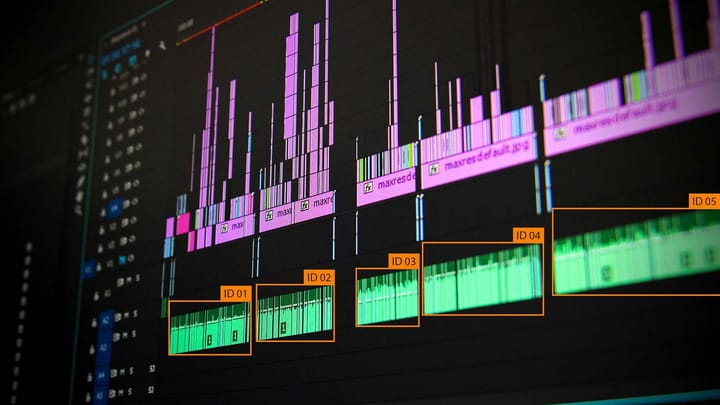Finding Your Next Remote Data Annotator Job

Are you looking for a remote data annotator job that allows you to work from the comfort of your home? Look no further! In this article, we will explore the best opportunities for remote data annotator jobs, providing you with the chance to advance your career in AI data annotation while maintaining a healthy work-life balance.
Key Takeaways:
- Remote data annotator jobs offer the flexibility to work from home or any location of your choice.
- Part-time positions are available, allowing you to work at your desired hours.
- Remote data annotator jobs provide an opportunity to gain experience in the field of AI and machine learning.
- Top companies like Expertia AI, Cognitive Collective, and Motive are actively hiring for remote data annotator roles.
- Requirements for remote data annotator jobs typically include a bachelor's degree in a relevant field and attention to detail.

What is a Remote Data Annotator Job?
A remote data annotator job involves the task of labeling and annotating data, which is essential for training machine learning models. As a remote data annotator, you will be responsible for reviewing and annotating various types of data, such as images, videos, and text, based on specific guidelines. These annotations help improve the accuracy and performance of AI systems. Remote data annotator jobs offer the flexibility to work from anywhere with an internet connection, making them ideal for individuals seeking remote work opportunities in the field of AI and machine learning.
Remote data annotators play a vital role in preparing datasets for machine learning algorithms to develop accurate and efficient models. By labeling and annotating data, remote data annotators contribute to training these models to perform tasks like image recognition, natural language processing, and sentiment analysis.
The key responsibilities of a remote data annotator include:
- Reviewing and understanding annotation guidelines.
- Applying consistent and accurate labels to data.
- Annotating data using various methods such as bounding boxes, polygons, and semantic segmentation.
- Ensuring the quality and integrity of the annotated data.
- Collaborating with team members and providing feedback on annotation guidelines.
- Meeting project deadlines and prioritizing tasks effectively.
To succeed in a remote data annotator role, attention to detail and accuracy are critical. Annotating data requires precision to ensure the machine learning models are trained properly. Additionally, strong communication skills and the ability to work independently are essential for effectively collaborating with remote teams and managing your workload.
The Importance of Remote Data Annotation
Remote data annotation is an integral part of the machine learning pipeline. It provides labeled data that is necessary for training AI models to make accurate predictions and decisions.
Without proper data annotation, machine learning algorithms cannot learn from the input data and make meaningful outputs. Remote data annotators contribute to the development of AI systems across various industries, including healthcare, autonomous vehicles, e-commerce, and more.
By accurately annotating data, remote data annotators help improve the performance of AI models and enhance their ability to understand and interpret complex information. This enables AI systems to provide valuable insights, solve real-world problems, and deliver innovative solutions.
Challenges and Considerations
Remote data annotator jobs come with their own set of challenges and considerations. Some of these include:
- Ensuring consistent labeling: Remote data annotators need to follow annotation guidelines precisely to achieve consistent labeling across the dataset. Consistent labeling is crucial for training accurate AI models.
- Handling large datasets: Remote data annotators may need to work with large volumes of data, which can be time-consuming and require efficient data management strategies.
- Dealing with ambiguous data: Some datasets may contain ambiguous or challenging instances that require additional expertise or collaboration with domain experts.
- Maintaining data privacy and confidentiality: Remote data annotators must adhere to strict data privacy and confidentiality protocols to protect sensitive information.
Despite these challenges, remote data annotator jobs offer exciting opportunities for individuals passionate about AI and machine learning. They provide a chance to contribute to groundbreaking projects, work with cutting-edge technologies, and play a vital role in shaping the future of AI-driven solutions.

Benefits of Remote Data Annotator Jobs
Remote data annotator jobs offer a range of advantages that make them an attractive option for individuals seeking flexible and fulfilling work opportunities. Whether you are a seasoned professional or just starting your career, remote data annotation positions provide numerous benefits to enhance your work-life balance, career growth, and earning potential.
Flexibility and Work-Life Balance
One of the major benefits of remote data annotator jobs is the freedom to work from the comfort of your own home or any location of your choice. Gone are the days of long commutes and rigid office hours. With remote work, you have the flexibility to create your own schedule, allowing for a better work-life balance. You can save valuable time and energy that would have been spent on commuting and invest it in your personal life or pursue other interests.
Part-Time Opportunities
Remote data annotator jobs often offer part-time positions, giving you the flexibility to work at your preferred hours. This is especially beneficial for individuals who are looking for additional income or those who require a flexible work schedule due to personal commitments. Whether you are a student, a parent, or simply prefer part-time work, remote data annotation positions allow you to customize your working hours to fit your needs.
Experience in AI and Machine Learning
"Remote data annotator jobs provide an excellent opportunity for individuals to gain hands-on experience in the field of AI and machine learning, which are rapidly growing industries."
Working as a remote data annotator allows you to be actively involved in training AI models by reviewing and annotating various types of data, such as images, videos, and text. This hands-on experience enables you to develop a deep understanding of AI and machine learning concepts and techniques, positioning you for future career growth in these exciting fields. As AI continues to shape various industries, the demand for skilled data annotators is only expected to increase.
Competitive Compensation and Career Growth
Remote data annotator jobs often come with competitive compensation packages that reflect your skills and experience. Many companies offer attractive salary options and additional benefits, such as healthcare and retirement plans. These positions also provide opportunities for career growth, as you can develop your expertise in AI and machine learning and expand into higher-level roles within the organization.
Visually Engaging Table:
| Benefits of Remote Data Annotator Jobs |
|---|
| Flexibility and Work-Life Balance |
| Part-Time Opportunities |
| Experience in AI and Machine Learning |
| Competitive Compensation and Career Growth |
Remote data annotation positions offer a host of benefits, including flexibility, part-time opportunities, experience in AI and machine learning, competitive compensation, and career growth. These advantages make remote data annotator jobs an excellent choice for individuals seeking a rewarding and fulfilling career in a thriving industry.
Top Companies Hiring for Remote Data Annotator Jobs
If you're looking for remote machine learning annotator jobs, you're in luck! There are several top companies actively seeking skilled professionals in this field. These companies specialize in AI and machine learning technologies and offer exciting opportunities for remote data annotators.
- Expertia AI: Expertia AI is a leading company in the field of AI and machine learning. They are known for their innovative solutions and cutting-edge technologies. Expertia AI offers remote data annotator job positions that provide the chance to work on diverse projects and contribute to the development of AI models.
- Cognitive Collective: Cognitive Collective is a renowned company focused on AI research and development. They are actively hiring remote data annotators to label and annotate data for their machine learning models. Joining Cognitive Collective offers the opportunity to work with a talented team and contribute to groundbreaking AI projects.
- Motive: Motive is a dynamic company that specializes in AI-driven solutions. They are seeking remote data annotators to support their AI model development. Motive provides a collaborative and stimulating work environment, encouraging innovation and personal growth.
These companies offer competitive compensation packages and the potential for career advancement in the fast-growing field of AI. Working for them will provide you with valuable experience and the opportunity to contribute to cutting-edge technologies.
Requirements for Remote Data Annotator Jobs
To qualify for remote machine learning annotator jobs, candidates typically need a bachelor's degree in computer science, IT, management, or a related field. While prior experience in data annotation is preferred, many companies also consider fresh graduates or individuals with limited experience.
Attention to detail, strong organizational skills, and the ability to work collaboratively are essential for success in remote data annotator roles. Remote data annotators must have the capability to understand and adhere to specific annotation guidelines provided by the companies.
Some companies may require specific domain knowledge, such as medical terminology or coding procedures, depending on the nature of the data being annotated. Therefore, having a specialized understanding of the field being annotated might be beneficial for certain data annotation roles.
Required Qualifications for Remote Data Annotator Jobs:
- Bachelor's degree in computer science, IT, management, or a related field
- Attention to detail and strong organizational skills
- Ability to work collaboratively and follow annotation guidelines
- Specialized knowledge in fields such as medical terminologies or coding procedures (may vary)
Acquiring the necessary qualifications and skills will position candidates for success in remote machine learning annotator jobs.
| Skills | Importance |
|---|---|
| Attention to Detail | High |
| Organizational Skills | High |
| Collaborative Abilities | High |
| Specialized Domain Knowledge | Varies (depending on the annotation task requirements) |
Responsibilities of a Remote Data Annotator
As a remote data annotator, your primary responsibilities will include reviewing and annotating customer data according to predefined guidelines. You will be tasked with labeling various data types, such as images, videos, and text, using specific annotation methods like bounding boxes and polygons. Accuracy and attention to detail are crucial to ensure high-quality annotated data. Remote data annotators may also be involved in reviewing and editing annotated data to improve accuracy and working on multiple projects simultaneously, requiring the ability to switch contexts efficiently.
Remote data annotators play a vital role in the development of AI models by providing accurate and detailed annotations. Their work directly impacts the performance and effectiveness of AI systems, enabling advancements in various industries, including healthcare, finance, and autonomous vehicles.
To exemplify the responsibilities of a remote data annotator, the following table illustrates the different types of data that annotators commonly work with and the corresponding annotation methods used:
| Data Type | Annotation Method |
|---|---|
| Images | Bounding boxes, segmentation masks |
| Videos | Temporal bounding boxes, object tracking |
| Text | Named entity recognition, sentiment analysis |
As seen in the table above, remote data annotators employ a variety of annotation methods depending on the data type. They must follow guidelines provided by the project or company to ensure consistency and accuracy across annotations.
Ultimately, the role of a remote data annotator is to contribute to the creation of high-quality labeled datasets, enabling the training and development of AI models that power various real-world applications.
Skills Required for Remote Data Annotator Jobs
Remote data annotator jobs require a combination of technical and interpersonal skills. To excel in this role, proficiency in computer science concepts and knowledge of programming languages like Python or SQL is beneficial. These skills enable data annotators to understand and manipulate datasets effectively, ensuring accurate annotations for machine learning models.
An in-depth understanding of AI and machine learning concepts is crucial for remote data annotators. This knowledge allows them to grasp the underlying principles and algorithms used in AI systems and apply them while annotating data. It also helps annotators comprehend the specific requirements and objectives of each annotation task.
Good communication skills, both oral and written, are essential for successful collaboration with global teams. Remote data annotators need to understand and clarify project requirements, report their progress, and seek clarifications when needed. Effective communication ensures alignment and enhances the quality of annotated data.
Attention to detail is a critical skill for remote data annotators. The ability to meticulously review and label data with precision ensures accurate annotations and high-quality annotated datasets. Moreover, remote data annotator jobs often involve working in fast-paced and deadline-driven environments. Thus, the ability to manage time efficiently and meet project timelines is paramount.
"As a remote data annotator, attention to detail and the ability to work in a fast-paced, deadline-driven environment are key skills required to ensure the accurate labeling and annotation of data."
Overall, a successful remote data annotator possesses a strong technical foundation, including proficiency in programming languages and a deep understanding of AI concepts. Additionally, effective communication skills, attention to detail, and the ability to meet deadlines are critical for achieving excellence in this role.
| Skills | Description |
|---|---|
| Technical Proficiency | Strong knowledge of computer science concepts and programming languages like Python or SQL. |
| AI and Machine Learning Understanding | In-depth knowledge of AI and machine learning concepts to effectively annotate data. |
| Effective Communication | Strong oral and written communication skills for collaborating with global teams. |
| Attention to Detail | Meticulous review and labeling of data to ensure accurate annotations. |
| Time Management | Ability to work in a fast-paced, deadline-driven environment and meet project timelines. |
Image: A professional remote data annotator working on annotating data for machine learning models.
How to Land a Remote Data Annotator Job
Looking to secure a remote data annotator job? Follow these steps to increase your chances of landing the perfect position:
- Update your resume: Tailor your resume to highlight relevant skills and experience in data annotation and AI. Include any relevant certifications or training you have completed.
- Create a compelling cover letter: Craft a cover letter that showcases your enthusiasm for AI and data annotation. Highlight your relevant skills, experience, and why you are passionate about this field.
- Showcase your portfolio: Build a strong online presence by creating a portfolio of your previous data annotation projects. Demonstrate your expertise and attention to detail by showcasing samples of your work.
- Utilize online job platforms: Browse online job platforms, such as Expertia AI and theScale blog, to find remote data annotator job listings. Set up job alerts to stay informed about new opportunities.
- Network with professionals: Connect with professionals in the field of AI and data annotation. Attend online events, join industry-specific forums, and engage with professionals on social media platforms like LinkedIn.
- Leverage social media: Use social media platforms like LinkedIn to connect with potential employers and showcase your skills and experience. Engage with relevant AI and data annotation communities to expand your network.
- Prepare for interviews: Research the company thoroughly before interviews. Familiarize yourself with different data annotation methods and AI technologies. Be ready to demonstrate your knowledge and expertise during the interview process.
The Future of Remote Data Annotator Jobs
Remote data annotator jobs are poised for significant growth in the coming years as the demand for AI and machine learning continues to rise. Organizations increasingly rely on annotated data to train their models, creating a need for skilled professionals to label and annotate large datasets. The future of remote data annotator jobs looks promising, with abundant opportunities for career advancement and involvement in cutting-edge AI projects.
As AI technologies evolve and become more integrated into various industries, the need for accurately annotated data becomes crucial. Remote data annotators play a pivotal role in ensuring that machine learning models receive high-quality labeled data for training and development. With the continuous expansion of AI applications, the demand for remote data annotator jobs is expected to grow exponentially.
One of the primary factors driving the growth of remote data annotator jobs is the increasing availability of remote work opportunities. Companies are recognizing the benefits of remote collaboration, and AI-driven industries are no exception. Remote data annotation allows companies to tap into a global talent pool, selecting the best professionals from anywhere in the world. This flexibility not only benefits the companies but also provides opportunities for professionals seeking remote work in the field of AI and machine learning.

The Importance of Annotated Data
Annotated data is the backbone of training machine learning models. Data annotators label and annotate various types of data, such as images, videos, and text, using specific annotation methods like bounding boxes and polygons. These annotations provide the necessary context and labels that enable AI systems to learn and make accurate predictions.
"The accurate annotation of data is essential for the success of AI systems. It ensures that machine learning algorithms receive reliable, labeled data for training and improves the accuracy, performance, and real-world application of AI models."
Remote data annotators play a critical role in ensuring that AI models are trained using quality annotated data. By collaborating remotely, these professionals can contribute to projects on a global scale and engage in various AI applications across industries.
To keep up with the demands of the rapidly growing field, remote data annotators must stay updated on the latest AI technologies, annotation methods, and industry trends. Continual learning and improvement are crucial for remote data annotators seeking long-term success in their careers.
The Advantages of Remote AI Data Annotation Jobs
Remote AI data annotation jobs offer numerous advantages to professionals seeking a flexible and fulfilling career:
- Flexibility: Remote data annotators have the freedom to work from anywhere with an internet connection, allowing them to create a work environment that suits their needs.
- Work-Life Balance: Remote work eliminates the daily commute, enabling data annotators to spend more time on personal endeavors and achieve a better work-life balance.
- Global Collaboration: Remote data annotators have the opportunity to collaborate with professionals from diverse backgrounds and cultures, fostering a rich learning experience and cultural understanding.
- Career Growth: As AI continues to advance, remote data annotators can stay at the forefront of developments and gain valuable experience by contributing to cutting-edge AI projects.
Overall, the future of remote data annotator jobs is bright, with abundant opportunities for growth and impactful contributions to the field of AI. As the demand for annotated data increases, professionals in this role can expect a rewarding career filled with exciting challenges and the satisfaction of helping shape the future of AI.
| Advantages of Remote Data Annotation Jobs in AI |
|---|
| Flexibility to work from anywhere |
| Improved work-life balance |
| Opportunity for global collaboration |
| Potential for career growth and involvement in cutting-edge AI projects |
Salary and Compensation for Remote Data Annotator Jobs
The salary and compensation for remote data annotator jobs can vary depending on several factors, including experience, education, and the company's location. According to data from Payscale, the average annual salary for data annotators in remote positions ranges from $40,000 to $80,000.
Remote data annotators may also have the opportunity to receive additional compensation in the form of bonuses and profit-sharing, depending on the company's policies and performance. These incentives can provide further financial rewards based on individual and team achievements.
For individuals seeking part-time remote data annotation jobs, compensation structures may differ. Some part-time positions offer hourly rates, allowing flexibility in determining working hours and income. Others may provide project-based pay, with compensation tied to specific tasks or completion milestones.
It is important for job seekers interested in remote data annotator positions to research and compare the salary ranges and compensation packages offered by different companies. Through thorough evaluation, individuals can make informed decisions and choose opportunities that align with their financial goals and work preferences.
Key Points:
- Remote data annotator jobs offer salary ranges from $40,000 to $80,000 per year.
- Additional compensation options such as bonuses and profit-sharing may be available.
- Part-time remote data annotation jobs may offer hourly rates or project-based pay.
- Researching and comparing compensation packages is crucial in making informed decisions.
Please note: The image above is for illustrative purposes only and does not represent specific salary figures for remote data annotator jobs.
Advantages of Remote Data Annotation Jobs in AI
Remote data annotation jobs in AI offer numerous advantages. By working remotely, you have the freedom to choose your workspace and schedule, promoting a better work-life balance. Remote work also eliminates the need for a daily commute, saving time and reducing environmental impact. Additionally, remote data annotation jobs provide the opportunity to contribute to meaningful AI projects, contributing to technological advancements and shaping the future of AI. The flexibility and potential for career growth in the field of AI make remote data annotation jobs an attractive option for individuals passionate about AI and machine learning.
One of the key advantages of remote data annotation jobs in AI is the flexibility it offers. By working remotely, you have the freedom to set up your workspace in a way that suits your needs and preferences. Whether it's working from a cozy corner of your home or a favorite coffee shop, you have the freedom to choose where you work. This flexibility not only allows you to create a comfortable working environment but also helps in maintaining a healthy work-life balance.
Remote work also eliminates the need for a daily commute. This means you can save precious time that would otherwise be spent stuck in traffic or waiting for public transportation. Not only does this save you time and reduce stress, but it also has a positive impact on the environment by reducing carbon emissions.
Moreover, remote data annotation jobs allow you to contribute to meaningful AI projects. The work you do as a remote data annotator directly impacts the development and improvement of AI systems and technologies. By accurately labeling and annotating data, you play a critical role in training machine learning models and improving their performance. This contribution to cutting-edge AI projects not only provides professional satisfaction but also helps shape the future of AI.
The field of AI offers immense potential for career growth, and remote data annotation jobs allow you to tap into that potential. As companies across various industries continue to invest in AI technologies, the demand for skilled data annotators is on the rise. By working remotely, you have access to a global job market, offering a wide range of opportunities to advance your career in AI and machine learning. Whether you are starting your career or looking to make a career switch, remote data annotation jobs provide a pathway for growth and development in the field of AI.
"Remote data annotation jobs provide the flexibility and freedom to work on cutting-edge AI projects while maintaining a healthy work-life balance."
The advantages of remote data annotation jobs in AI are undeniable. From the flexibility to shape your work environment to the opportunity to contribute to meaningful AI projects, these jobs offer a unique combination of autonomy, impact, and growth potential. Whether you are a recent graduate, an experienced professional, or someone looking for a career change, remote data annotation jobs in AI provide an exciting pathway to a rewarding and fulfilling career.
| Advantages of Remote Data Annotation Jobs in AI |
|---|
| Flexibility to choose workspace and schedule |
| No daily commute, saving time and reducing environmental impact |
| Contribution to meaningful AI projects |
| Potential for career growth in the field of AI |
Conclusion
Remote data annotator jobs provide exciting opportunities for individuals seeking to advance their careers in AI and machine learning. These jobs offer the flexibility to work from home, allowing for a healthy work-life balance. With competitive compensation packages, remote data annotators can enjoy professional growth while enjoying the comfort of their own space.
As the demand for annotated data continues to grow, remote data annotators play a crucial role in training AI models and contributing to cutting-edge AI projects. By reviewing and annotating data based on specific guidelines, these professionals help improve the accuracy and performance of AI systems.
If you're interested in pursuing a rewarding career in AI data annotation, consider exploring opportunities with top companies that specialize in AI and machine learning technologies. These companies, such as Expertia AI, Cognitive Collective, and Motive, are actively hiring remote data annotators and offer exciting prospects for career advancement.
Take the first step towards a fulfilling career in AI data annotation by exploring remote data annotator job opportunities. With the ability to work from home and contribute to the development of AI technologies, you can be part of shaping the future of AI while enjoying the benefits of remote work.
FAQ
What is a remote data annotator job?
A remote data annotator job involves the task of labeling and annotating data, which is essential for training machine learning models. As a remote data annotator, you will be responsible for reviewing and annotating various types of data, such as images, videos, and text, based on specific guidelines. These annotations help improve the accuracy and performance of AI systems.
What are the benefits of remote data annotator jobs?
Remote data annotator jobs offer the flexibility to work from anywhere with an internet connection, making them ideal for individuals seeking remote work opportunities in the field of AI and machine learning. They provide better work-life balance, the option for part-time positions, the opportunity to gain experience in the field of AI and machine learning, competitive compensation packages, and room for career growth.
Which companies are hiring for remote data annotator jobs?
Some prominent companies hiring for remote data annotator jobs include Expertia AI, Cognitive Collective, and Motive. These companies specialize in AI and machine learning technologies and require skilled professionals to annotate and label data for their models.
What are the requirements for remote data annotator jobs?
To qualify for remote data annotator jobs, you typically need a bachelor's degree in computer science, IT, management, or a related field. Prior experience in data annotation is preferred, but many companies also consider fresh graduates or individuals with limited experience. Attention to detail, strong organizational skills, and the ability to work collaboratively are essential for success in remote data annotator roles.
What are the responsibilities of a remote data annotator?
The primary responsibilities of a remote data annotator include reviewing and annotating customer data according to predefined guidelines, labeling various data types such as images, videos, and text, using specific annotation methods like bounding boxes and polygons, reviewing and editing annotated data to improve accuracy, and working on multiple projects simultaneously.
What skills are required for remote data annotator jobs?
Remote data annotator jobs require a combination of technical and interpersonal skills. Proficiency in computer science concepts and knowledge of programming languages like Python or SQL is beneficial. Additionally, a strong understanding of AI and machine learning concepts is essential. Good communication skills, attention to detail, and the ability to work in a fast-paced environment are also key skills required for remote data annotator positions.
How can I land a remote data annotator job?
To land a remote data annotator job, update your resume to highlight relevant skills and experience, create a compelling cover letter that showcases your enthusiasm for AI and data annotation, build a strong online presence by showcasing your portfolio of previous data annotation projects, utilize online job platforms and job boards to find remote data annotator job listings, network with professionals in the field, and prepare for interviews by researching the company and demonstrating your knowledge of data annotation methods and AI technologies.
What is the future of remote data annotator jobs?
Remote data annotator jobs are expected to witness significant growth in the coming years as the demand for AI and machine learning continues to rise. Organizations rely on annotated data to train their models, creating abundant opportunities for remote data annotators.
What is the salary and compensation for remote data annotator jobs?
The salary and compensation for remote data annotator jobs vary depending on factors such as experience, education, and the company's location. According to Payscale, the average annual salary for data annotators ranges from $40,000 to $80,000. Part-time remote data annotation jobs may offer hourly rates or project-based pay.
What are the advantages of remote data annotation jobs in AI?
Remote data annotation jobs in AI offer the advantages of a better work-life balance, the ability to work from anywhere, the opportunity to contribute to meaningful AI projects, and the potential for career growth in the field of AI.



Comments ()